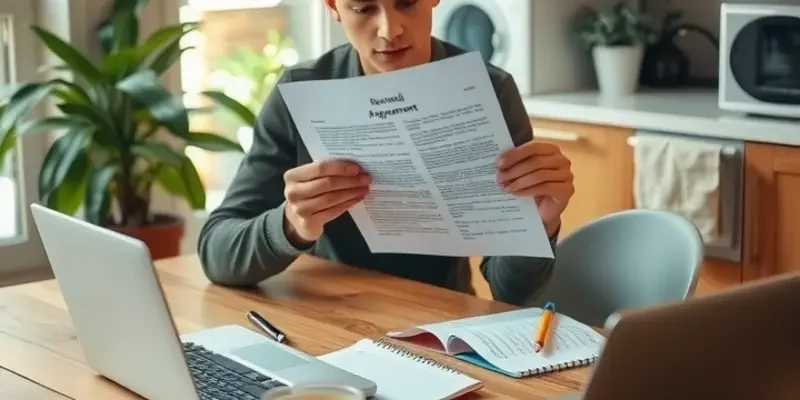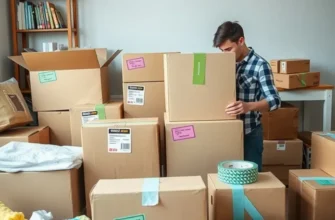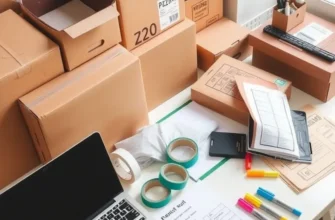Renting your first apartment is about as exhilarating as it is stressful. You’ve found a cozy little space that ticks all your boxes (good coffee shops nearby, a friendly neighbor who doesn’t blast loud music at 2 AM), and now you face that notorious document: the rental agreement. It’s thick, it’s full of legal jargon, and if you squint hard enough, it might just be threatening you with something ominous. But don’t panic! This is where we clear the fog and demystify the legalese behind renting. Understanding your apartment contract will empower you and save you from potential misunderstandings (and future landlord debates that could shine in a courtroom!). Whether you’re a young adult branching out, a couple ready for cohabitation adventures, or a family searching for comfort in a new neighborhood, we’ve got you covered with the top questions you must ask to lock down that apartment contract like a pro.
Understanding the Basics of Your Rental Agreement

Entering the world of rental agreements can feel like you’ve stepped into a foreign film without subtitles. But fear not, intrepid renter! This guide will demystify the essentials and ensure you’re prepared to sign on the dotted line (without accidentally signing away your firstborn).
First things first: read the entire agreement. Yes, every single word. Somewhere between the introduction and the signature line might lurk a clause about your future participation in annual landlord bingo nights.
Lease Length: One of the first things to look for is the duration of your lease. Is it a one-year commitment, or month-to-month? This will affect decisions such as whether you buy that giant inflatable pool and other aspects of your stay.
Security Deposits: Think of this as your landlord’s insurance policy against a serious fridge breakdown or creative wall art attempts. Understand exactly how much it is, when it’s due, and how you can get it back (hint: cleaning the apartment as if it’s autographed by a celebrity helps).
Rent: Arguably the most crucial detail. Know exactly when rent is due and how you should pay it (no, they probably won’t take Monopoly money). Look for any potential fees for late payments—while a few days may seem harmless to you, your landlord might not share your view.
Utilities and Maintenance: Find out which utilities you’re responsible for and which are included. Is water covered? How about heating? If you’re on the hook for all utilities, perhaps brush up on our reducing utility bills techniques.
Regarding maintenance, understand the process. Most landlords will allow reasonable DIY fixes but draw the line at installing a trampoline room. Make sure the contract specifies how and when repairs are handled.
Pet Policies: If you have pets or plan to get a collection of goats, this section is vital. Some properties only allow particular pets (sorry, ferret lovers) or require additional deposits.
Termination Conditions: Understand how to gracefully exit your lease, whether you’re upgrading your digs or moving to a yurt. Common clauses may include notice periods and penalties for early termination.
Amendments and Special Clauses: Watch out for addendums that include any bespoke agreements, like the mandatory wearing of duck slippers on Tuesdays.
Inspections: Check when inspections occur and what standards you’re expected to meet. This may be the only time in your life a landlord can comment on your sock organization.
In short, your rental agreement outlines the boundaries of your rental relationship. Understanding these essentials will prevent unexpected surprises and ensure a smooth living arrangement. Welcome to your next home, minus the contract-induced headaches!
Key Questions to Ask Before Signing

Signing a rental contract is a significant step, and it’s important to be armed with the right questions. These questions not only protect your interests but also ensure transparency in your future living situation.
What is the pet policy?
If you’re a pet owner, or plan to become one, this question is crucial. Some landlords outright prohibit pets, while others allow them under certain conditions. Find out about pet deposits, monthly fees, or breed restrictions. This will help you avoid future conflicts and ensure your furry friend is welcome. For more guidance on living with pets, check this article on pet grooming stations in apartments.
How are maintenance requests handled?
Knowing how quickly and efficiently maintenance issues are resolved can save you a lot of stress. Ask about the process for reporting problems and the typical response time. Inquire whether maintenance services are available 24/7, especially for emergencies like water leaks or heating issues during winter.
Why did the last tenant leave?
Understanding why the previous occupant vacated can provide insights into potential issues with the apartment or building. It could reveal ongoing maintenance problems, neighbor disputes, or other issues that might affect your decision.
Are utilities included in the rent?
This can impact your budget significantly. Clarify whether you’re responsible for paying for utilities such as water, gas, electricity, or garbage collection. It’s also wise to ask about average utility costs to help you plan your finances better.
What are the rules regarding renovations or decorations?
Before making any changes, ensure you understand the landlord’s policies. Many leases restrict altering the space without permission. Knowing the do’s and don’ts helps avoid security deposit deductions when you move out.
Is renters insurance required?
Landlords increasingly require proof of renters insurance. Even if not mandatory, it’s a wise investment to protect your belongings against damage or theft. Knowing the requirements upfront prevents surprises when signing the contract.
What’s the parking situation?
If you own a vehicle, inquire about available parking spaces, fees, and guest parking arrangements. This can influence the convenience of your daily routine and any additional costs.
Are there any upcoming renovations or construction work planned?
Scheduled construction might affect your choice if it disrupts your daily life with noise or accessibility issues. Understanding future plans for the building or neighborhood can influence your living experience.
Being inquisitive before signing a lease isn’t just about protecting yourself. It’s about stepping into a new living space with clarity and confidence, knowing what to expect and how to handle any situations that might arise.
Final words
Signing a rental agreement doesn’t need to feel like being trapped in a twisty maze of rules and fine print. By asking the right questions and understanding the intricacies of your contract, you’ll step confidently into your new apartment. Remember, a good rental agreement sets the tone for a smooth living experience, so don’t rush in—make sure you’re fully informed! Happy apartment hunting, and may your next lease be as delightful as your first cup of coffee in your new home.









